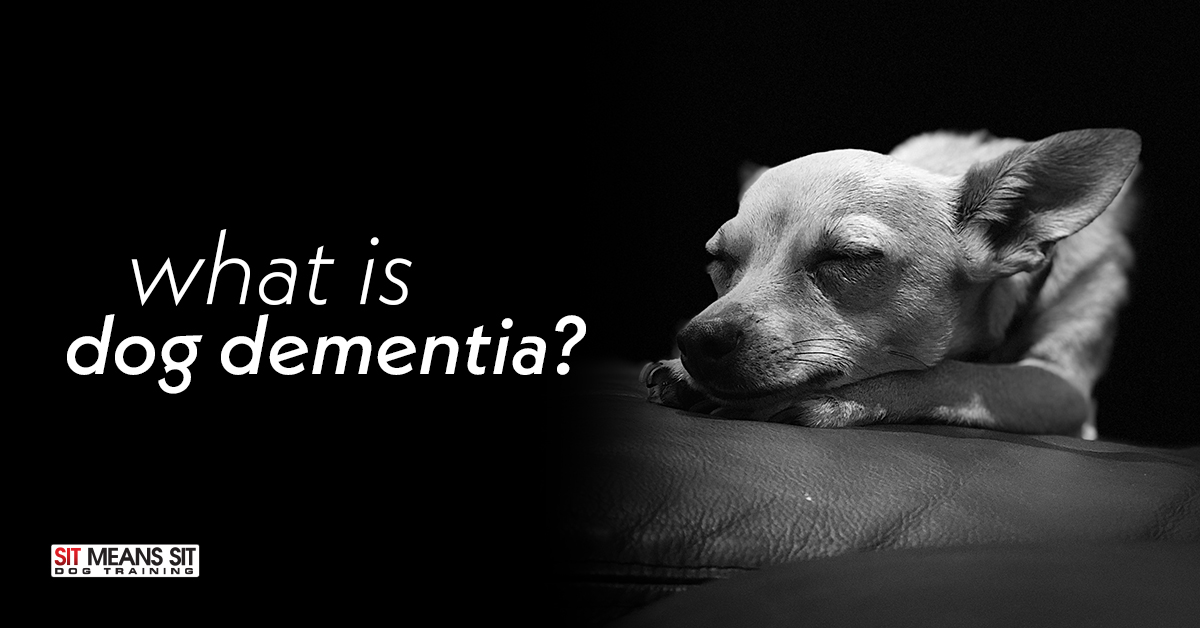
What is Dog Dementia?
Canine Cognitive Dysfunction (CCD) syndrome is a cognitive disorder related to the aging of a dog’s brain with effects similar to Alzheimer’s. But what does it look like in dogs? Can it be diagnosed? What causes it and can it be prevented? Let’s take a deep dive into what it is in dogs and what we can do about it.
In general, the brain is affected by physical and chemical changes that happen naturally when aging. Genetics, brain tumors, and brain trauma are frequent predispositions to dementia in dogs as well. However, the exact cause of dementia is unknown.
Symptoms
Dementia symptoms in dogs can range from mild to severe and gradually worsen as your dog ages. The most common symptoms in dogs include:
- Failure to remember routines or previously learned training
- Anxiety
- Disorientation, confusion, appearing lost
- Increased irritability
- Blank stares at nothing
- Not responding to his name or known commands
- Lessened desire to play
- Wandering aimlessly
- Loss of appetite
- Lack of self-grooming
- Change in sleep cycle
While these are all symptoms of dementia, exhibiting any of them does not necessarily mean your dog has dementia. It’s possible that they are symptoms of another possible illness. The only way to diagnose dementia is to have a licensed professional rule out any other potential illness, sometimes including an MRI.
Prevention
Preventative measures haven’t exactly been proven, since the exact cause of dementia in dogs is unknown. Regular physical and mental activities may help to deter dementia in dogs. Consider these activities to maintain your dog’s mental health:
- Play games
- Teach him new tricks
- Regular exercise
- Use interactive toys
- Give him new experiences and regular socialization
- Give them a balanced, whole food age-appropriate diet
- Consider brain-healthy supplements
- Health checkups every six months
What Can I Do?
If you think your dog might have dementia, whether a mild onset or severe, consult your veterinarian. After a checkup which may include blood testes, ultrasounds, and X-rays or MRIs, he or she may have suggestions specific to your dog’s needs. Simple ways to help your dog include:
- Encourage social interaction
- Daytime activities and playtime
- Sunlight helps regular sleep cycles
- Establish routine
- Walk him; if he can’t walk, use a stroller or wagon to keep their brain activity levels high
- Switch to prescription senior dog food or a whole foods natural diet endorsed by your vet
- Add vet-approved supplements
- Invest in a GPS tracker, as your dog may wander and forget how to get home
- Keep commands simple and be patient
- Research alternative and conventional treatment options
Avoid changing your dog’s environment, keeping things as familiar as possible. You don’t want your dog to feel more confused and stressed due to changes.
Unfortunately, aging and health issues are not completely unavoidable. Be patient and loving as your dog faces new challenges. We all age, and although it can be frustrating and at times destructive, give them plenty of love and affection to give them comfort and safety in these burdensome times.
